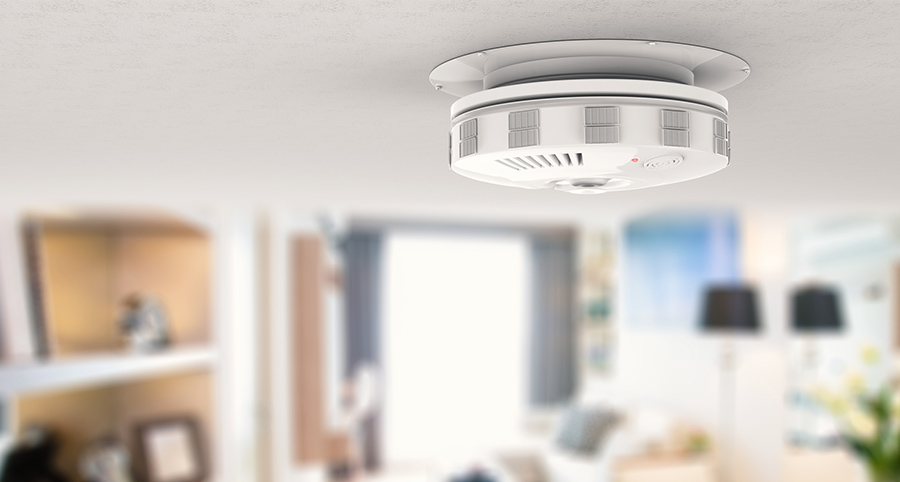Is there a difference between standard smoke detectors vs. monitored fire alarms in Little Rock?

In the Little Rock smoke detector vs. monitored fire alarm argument, it's obvious that a monitored fire alarm is the preferred alternative"> for your family. Smoke detectors are an important first step in shielding your place from a dangerous blaze, but they have some notable shortcomings. Alternatively, monitored fire alarms offer more methods to identify an emergency and are able to notify a monitoring team when disaster strikes. Pairing your fire alarms to a comprehensive smart home also brings out other benefits that your regular smoke detectors would only hope for.
The drawbacks of traditional smoke alarms in [[targetlocaion]]
Defending against fire is a chief concern for homeowners, and smoke detectors play a vital role in shielding your family. Even so, smoke detectors have various shortcomings. For instance, they will only react to smoke, not heat. If there is an emergency in your house, you would not be alerted unless the smoke ascends to the smoke detector. Although there are additional telltale signals of fire -- including a marked increase in warmth -- if there's no smoke, you won’t have a warning from your smoke detector.
What’s more, smoke detectors only beep if they find ample smoke. In the event a fire creeps along slowly at first, you may not be alerted until the flames are out of control. Some smoke detectors employ more than one sensor, meaning they will be able to perceive smoke from both a raging fire and something less intense. Whenever they do go off, it falls to the occupant to call first responders after they safely leave the residence.
Monitored fire alarms provide more value than ordinary smoke detectors
While they look about the same as regular smoke detectors, monitored fire alarms offer more benefits. If connected to a complete home security package, they can:
- Discern fire with different sensor types: Similar to a standard smoke detector, this monitored device has the ability to engage from an intense fire or one that has just started smoking. It will emit a high-decibel alarm if it recognizes a potential disaster.
- Detect fire with a sudden heat surge: A monitored fire alarm will also activate if it notices an abnormal increase in heat. Frequently, heat is noticed before smoke. Having additional ways to uncover a fire means extra means to protect your loved ones.
- Alerts trained monitoring representatives: Fires may happen when you are on site or somewhere else. Either way, your fire alarms will warn your monitoring team, who are able to swiftly call first responders. When every tick of the clock is critical, it's nice to have the knowledge that a trained professional is constantly keeping a watch of your residence.
- Pairs with home automation: Even though the main purpose of a fire alarm is to recognize an emergency and request help, it will also connect to other automated equipment. For instance, a activated alarm might make your system start the exhaust fan to impede the spread of fire or trigger lighting so you are able to locate the safest path out of the property.
Your monitored fire alarms are a key element of a complete smart home
The easiest method to get the most from your fire alarms is to integrate them with a Vivint home security system. Consult with a Vivint expert today and discover the ideal smart home for your needs. Call (501) 510-8749 or submit the form on this page to get started.